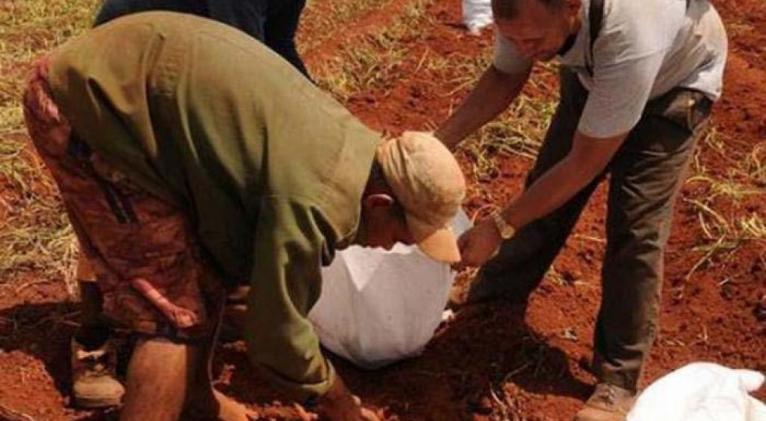Toward the development of ecological practices
especiales

Those who work at the Villa Alicia farm, located on kilometer 3.5 of Güira de Melena, in the Pedro Díaz community, know that turning a farm into a space to develop ecological agricultural practices isn’t achieved in just one day. Nonetheless, they recently decided to head out on this road.
Since the end of the 1950s, these lands have been worked by different generations of the same family, establishing farming as a deeply rooted tradition among its members.
Ubaldo Córdova Leal runs the farm – affiliated with the Raúl Cepero Bonilla Cooperative – with the help of his sons: Maykel and Ubaldo Córdova Cid, who having previously helped on the farm, decided to take it on as a full time occupation (once they had completed their high school studies) more than 10 years ago.
The 14.24 hectare farm is home to various crops and fruits, in addition to around 45 pigs, providing the provincial Pork Enterprise with 185 pounds of meat; while the family is planning to begin rabbit rearing in the coming months.
“So far this year we have delivered 100 tones of sweet potato, eight of garlic, one of avocado, two of pork with a further two to come, as well as 20 of taro. “We are preparing to harvest garlic and tomatoes at the end of September.
We have also planted bitter oranges and mamey, which we intermix with several exotic fruits such as cashew apples, canistels, cherrys, peaches, longan fruit, sugar apples, soursops and guavas, notes Córdova Leal.
The farm has received numerous recognitions for its work, including distinctions for the 40 and 45th Anniversary of the Agrarian Reform and others awarded by the cooperative.
We are in the process of turning it into an agro-ecological farm. For this we need to carry out integrated efforts, have sufficient capital to finance production, as well as intermix crops to create natural barriers. We also need a staple supply of biological resources and organic materials for decomposition, in addition to other practices we must implement, comment his sons.
This way we will be able to reduce the use of chemical products as well as expenses. We plan to make a biodigester, in order for which we need financing, they add.
Maykel and Ubaldo who recently became agricultural engineers highlight that their studies have enabled them to put theory into practice, exploit 100% of yields of all varieties of crops, use better quality seeds, ensure the soil is disease fre,e and thus reduce the potential risk of the spread of infection to other crops.
What is more, we will be able to share our knowledge with other producers, they note. The farm has become the ideal place to hold workshops, with the participation of campesinos from the cooperative and students from the National Association of Small Farmers (ANAP) former National School.
Their efforts have produced important results which have been highlighted in forum events. Given that studying always bears fruit, at the end of August they will begin their Masters degree studies in Agro-ecology, providing them with more tools to achieve their ultimate goal. Thus this family is clearing new paths toward the development of agro-ecological practices.













Add new comment